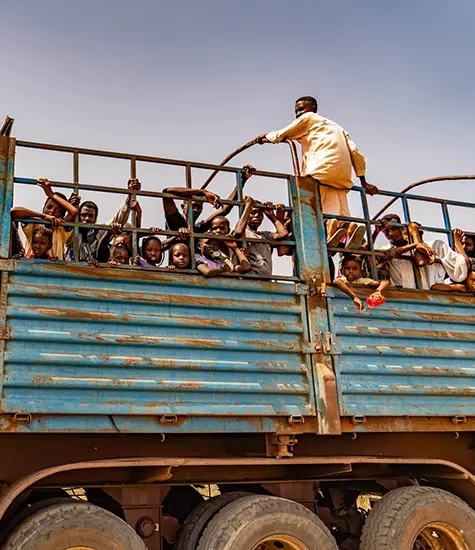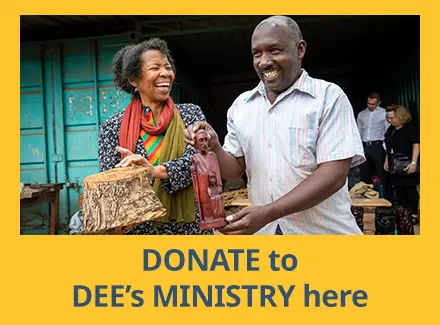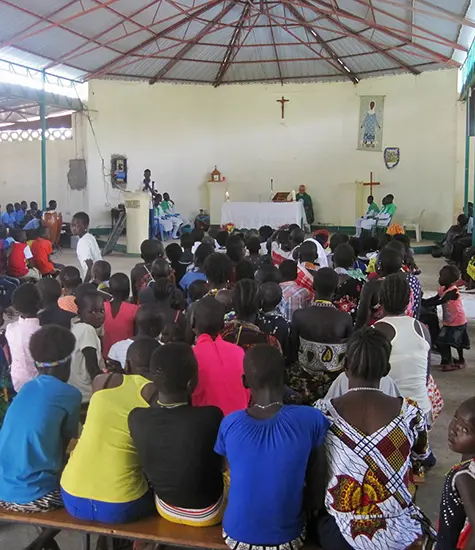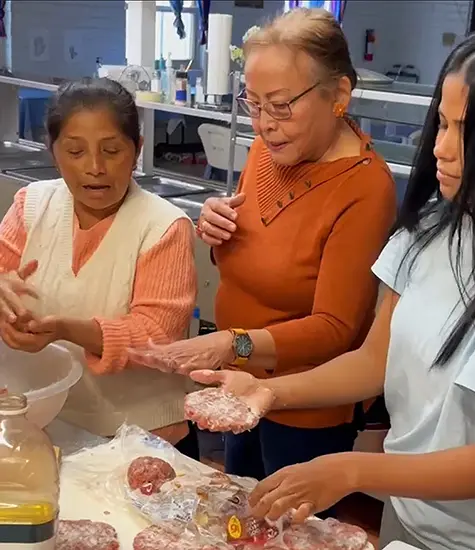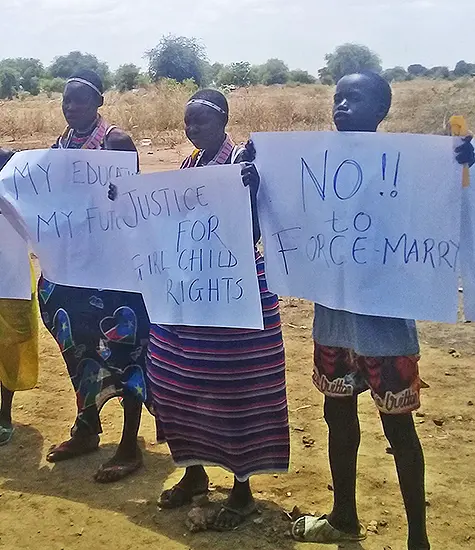Lent 2024 newsletter
Dee Dungy, Kenya
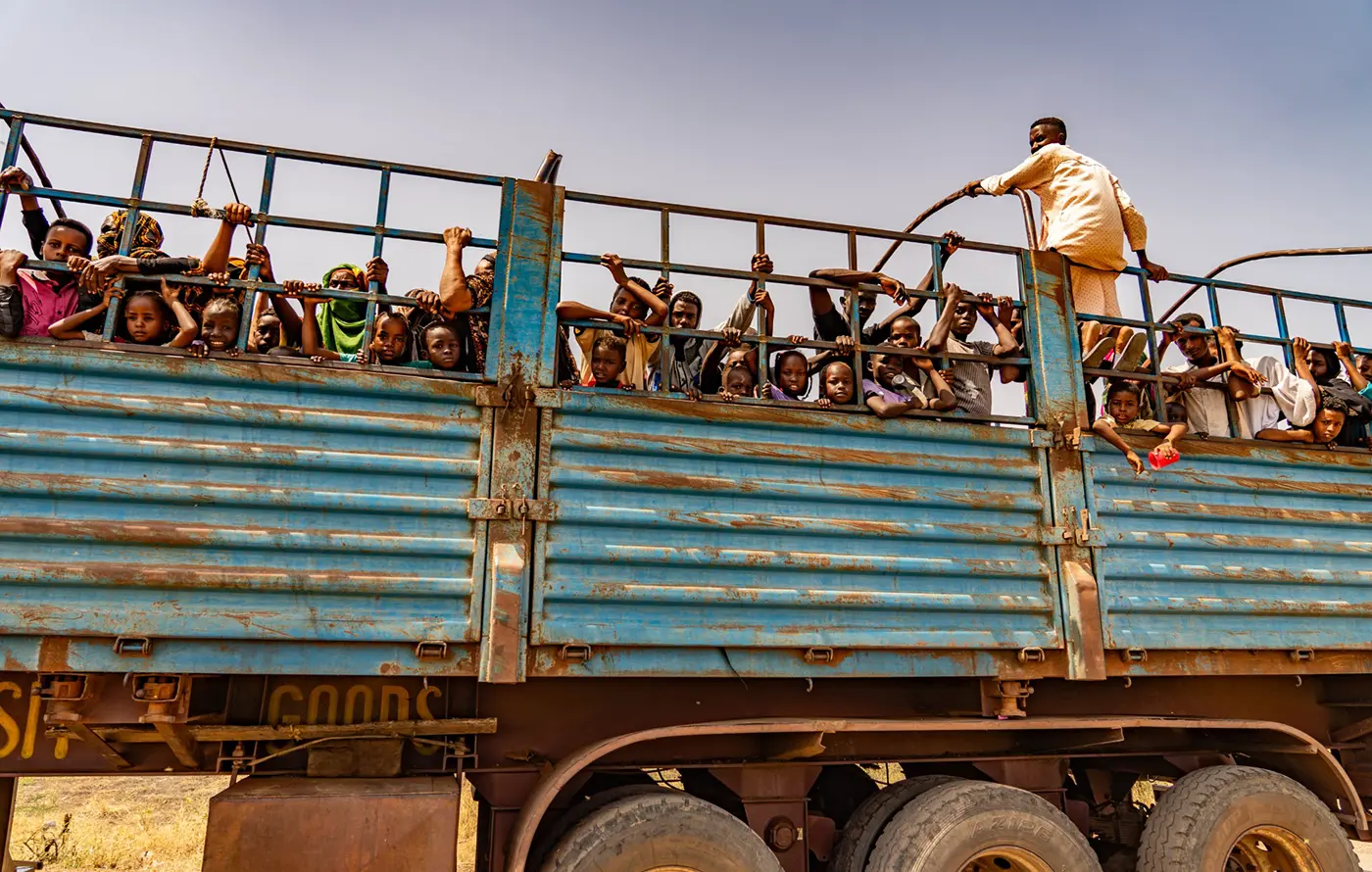
En route to the Renk Reception Centre for refugees and South Sudanese returnees in Renk, South Sudan (Photos by JRS – East Africa)
As the war in Sudan has now gone on for almost a year, the violence continues to impact the neighboring South Sudan’s humanitarian situation. More than half a million people — mainly South Sudanese returnees (80%) and refugees (20%) — have crossed into South Sudan since the violence erupted on April 15, 2023.
Renk County in Upper Nile State at the northern tip of South Sudan hosts the biggest number of people fleeing the violence in Sudan. According to the United Nations, over 450,000 (representing 84% of the total population of returnees and refugees) are currently in Renk. Average daily arrivals in Renk are estimated at 3,000 people per day.
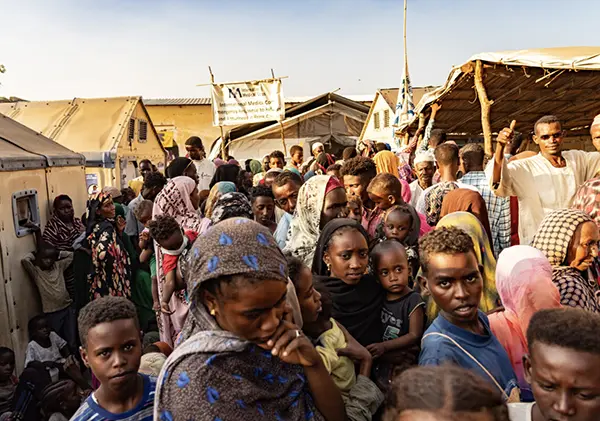
Refugees and returnees at the Renk Transit Centre
The influx of such great numbers of refugees and returnees exacerbates the already difficult situation in South Sudan. According to the Integrated Food Security Phase Classification (IPC), 1.65 million children under the age of 5 in South Sudan are projected to suffer from acute malnutrition in 2024, with nearly half a million severely malnourished. 870,000 pregnant or lactating women are acutely malnourished and need treatment (see also this report from the U.N.’s OCHA – Office for the Coordination of Humanitarian Affairs).
Sudan’s crisis is a mess. The power struggle between the warring generals is wreaking havoc on the country. A deluge of stun grenades and tear gas cacophony obscures the air and competes with the stench of casualties and animal decay. The damage to schools and hospitals disrupts how they can serve the people who need them most.
The health of women and children is being sacrificed by the war as they are being deprived of life-saving services of maternal and child healthcare, gender-based violence (GBV) services, nutrition systems and education.
The prevailing chaos and instability are driven by disputes over territorial control. The resulting anarchy has led to an imbalance in control and exploitation of natural resources, further aggravating the conflict among clans and along neighboring borders. Chad, South Sudan and Ethiopia are all ensnared in Sudan’s chronic political turmoil as clashes ignite over agricultural land along mutual borders.
Additionally, slow and sudden-onset catastrophes — particularly those exacerbated by droughts, floods and environmental degradation — cause resource shortages, fuel conflict and increase humanitarian needs. These events lead to food insecurity and malnutrition due to low crop production, pests and environmental damage. The dire consequences threaten the peace and stability of the entire region, particularly for women and children, who need stable access to life-saving services and protection on both sides of the border.
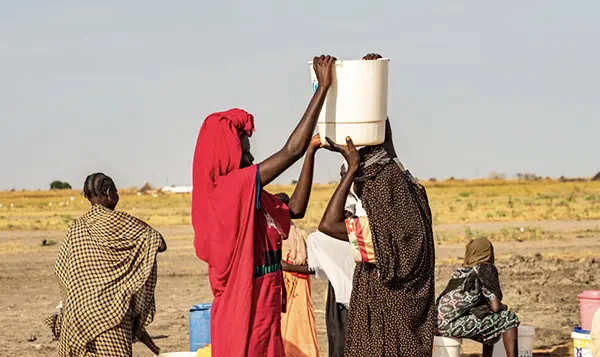
Girls carry water to the Zero Informal Displacement Site near Renk, South Sudan.
My prayer is for breaking the cycle of destruction in Sudan. I pray that the co-leaders consider the destructive impact of ignoring the well-being of their country. May they recognize the loss of a legacy, empty boardrooms that lack diversity, and that the absence of intellectual capital results in a lack of progress, learning and hope. If only the co-leaders reflected on their childhood memories of nurturing care, hot porridge, shared provisions from their neighbor’s shamba (farm) and the camaraderie with schoolmates, they could envision a brighter future for their country.
Envisioning Sudan’s rebirth could lead to replacing destructive tools with constructive tools of peace and unity. It would lead to prioritizing and accelerating justice, gender equality and equitable access for women and girls to resources, quality education, meaningful participation in climate decision-making, peace processes, food and security, and equitable health systems for mothers and children.
By investing in equitable approaches in these areas, leaders can start to work toward reconciliation and healing, shared prosperity and sustainable development for their country.
Jesuit Refugee Service East Africa, the organization I work for, serves refugees and returnees who fled from Sudan both in Renk and Maban in South Sudan’s Upper Nile State. We provide a wide range of services as part of our humanitarian response to this crisis:
- Education: JRS provides teacher training and professional development, inclusive education, life skills training, a scholarship program, and school infrastructural development (transitional learning spaces).
- Mental Health and Psychosocial Support (MHPPS) services include physiotherapy, psychological first aid, group and individual therapy/counseling, referral for specialized services and other services, recreational activities and games for children through child-friendly spaces and gender-based violence (GBV) awareness.
- Non-Food Items (NFI) distribution: We are distributing basic dignity kits to adolescent girls and women, including soap and sanitary pads, and tarpaulins, mosquito nets, clothes to new arrivals.
- Protection: JRS participates in monitoring and reporting new arrivals at the Transit Center and referring them for service support. We also participate in GBV awareness and referral of GBV cases to protection help desks at the Transit Center for further support.
- Peacebuilding and reconciliation: community dialogues, interfaith dialogues and outreach activities, pastoral accompaniment, and spiritual formation.
Please consider supporting my mission work in East Africa with a donation through the link below.
I invite you to walk with me as a “COMPANION IN MISSION.” Companions in Mission are friends and generous donors who give financial gifts on a regular (usually monthly) basis. For more information, visit Become a Companion in Mission. Thank you so much for your generosity!

